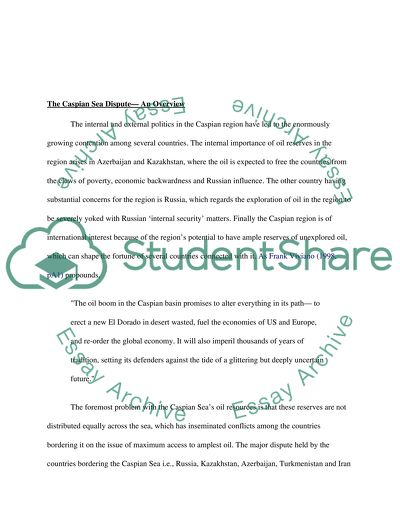Cite this document
(The Caspian Sea Dispute Report Example | Topics and Well Written Essays - 1750 words, n.d.)
The Caspian Sea Dispute Report Example | Topics and Well Written Essays - 1750 words. https://studentshare.org/politics/1519563-international-relations-the-caspian-sea-dispute
The Caspian Sea Dispute Report Example | Topics and Well Written Essays - 1750 words. https://studentshare.org/politics/1519563-international-relations-the-caspian-sea-dispute
(The Caspian Sea Dispute Report Example | Topics and Well Written Essays - 1750 Words)
The Caspian Sea Dispute Report Example | Topics and Well Written Essays - 1750 Words. https://studentshare.org/politics/1519563-international-relations-the-caspian-sea-dispute.
The Caspian Sea Dispute Report Example | Topics and Well Written Essays - 1750 Words. https://studentshare.org/politics/1519563-international-relations-the-caspian-sea-dispute.
“The Caspian Sea Dispute Report Example | Topics and Well Written Essays - 1750 Words”. https://studentshare.org/politics/1519563-international-relations-the-caspian-sea-dispute.


